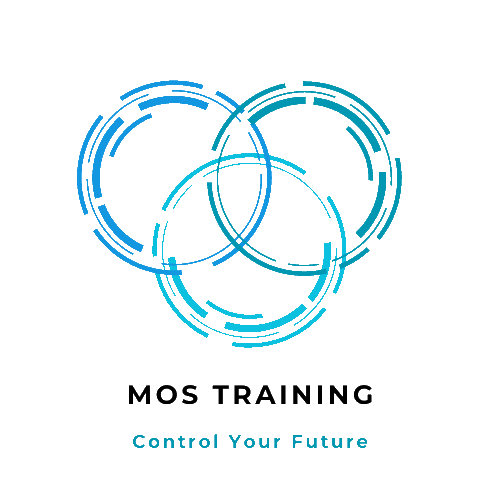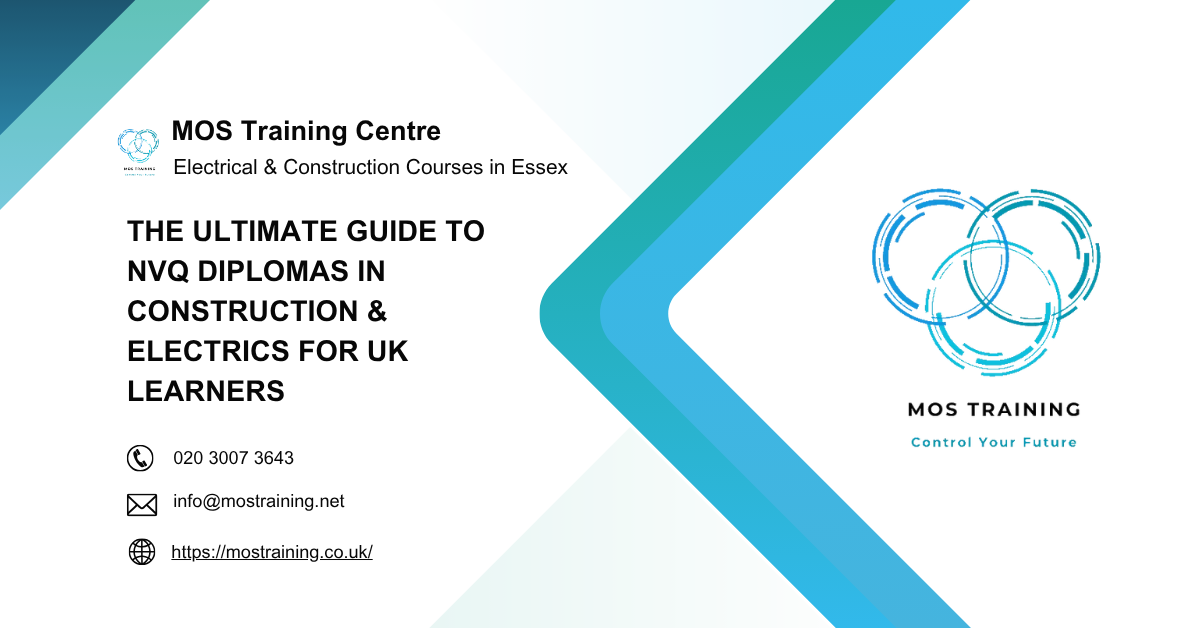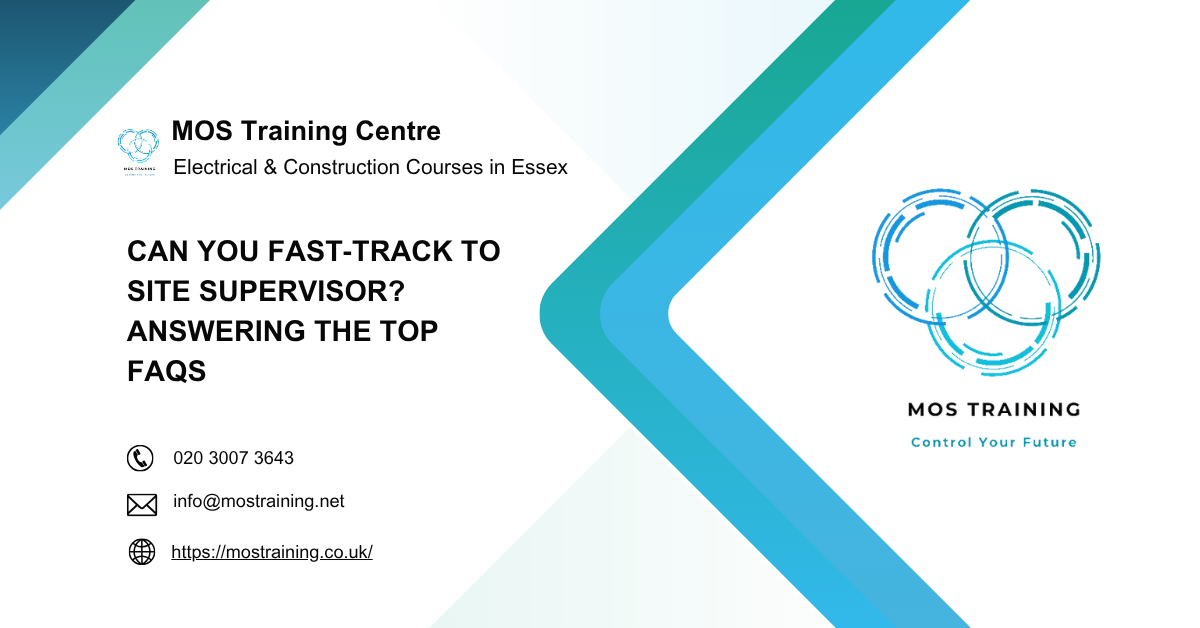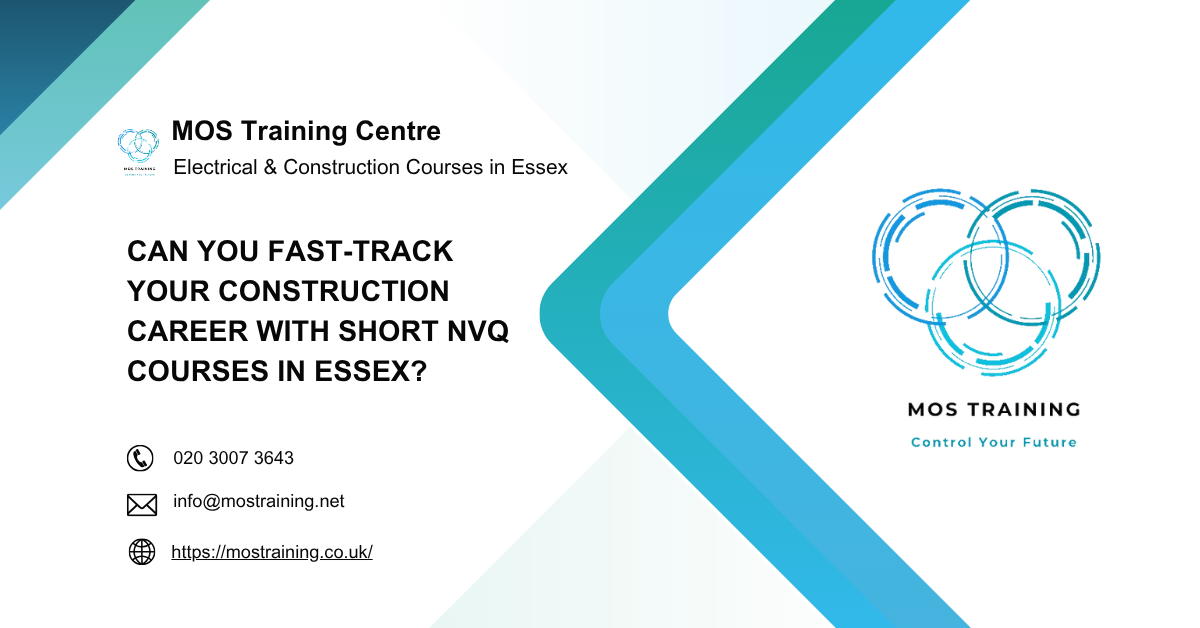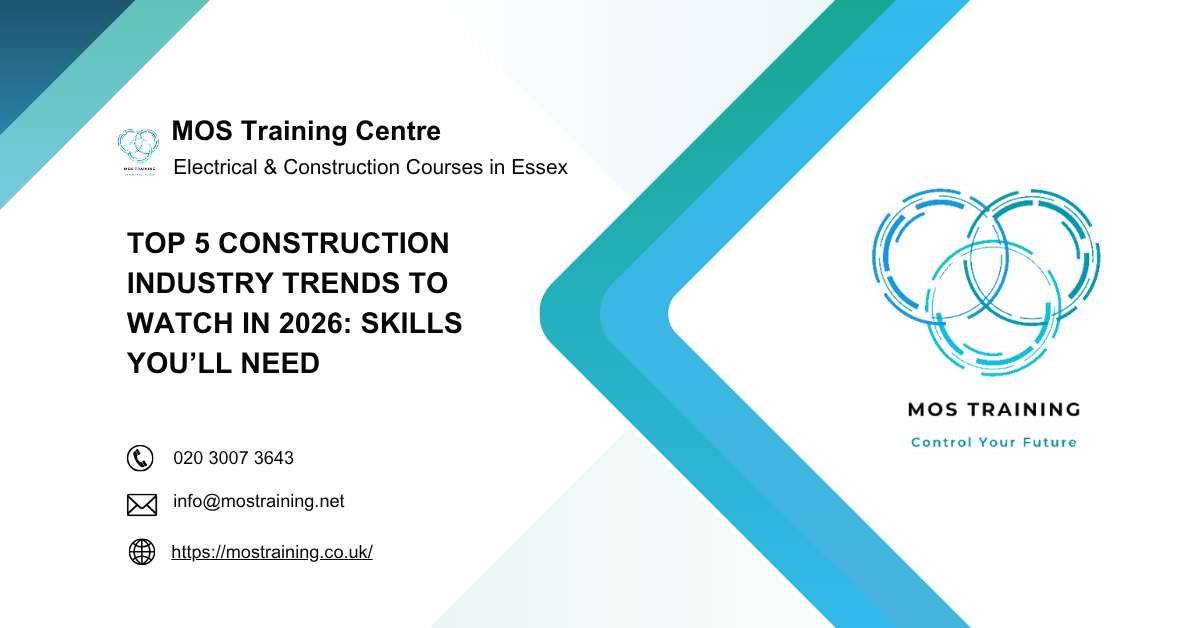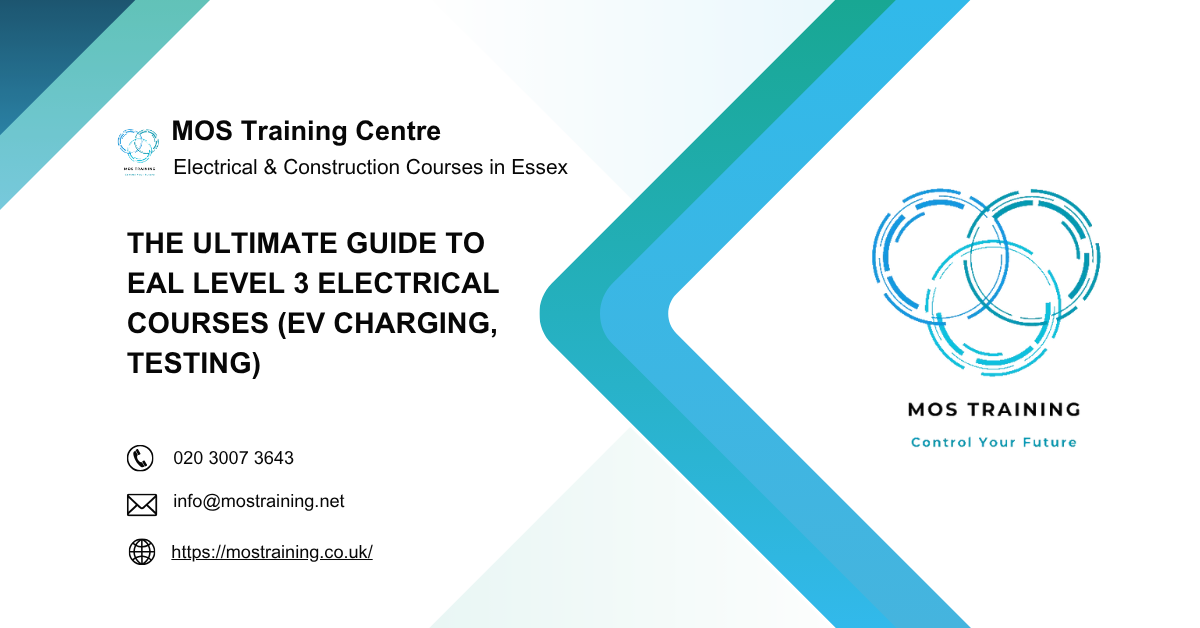NVQ vs Apprenticeship – Which Option Is Better for Your Career in the UK?
Deciding between an NVQ and an apprenticeship is one of the most important career choices you’ll make when entering the UK workforce. Each path offers unique advantages depending on your learning style, career goals, and life circumstances. Whether you’re a school leaver, career changer, or someone looking to gain industry-recognised qualifications, understanding how NVQs and apprenticeships compare can help you make a confident and informed decision.
Here's What We Have Covered In This Article
Foundations of Vocational Learning in the UK
Why Vocational Qualifications Matter
Vocational qualifications give people practical skills that employers value. They support workforce development by helping individuals become job ready through focused training. Whether your aim is to change careers, qualify for a role, or enhance your capabilities in a current position, skills based education offers a clear and achievable route.
What Is an NVQ and How Is It Assessed in the Workplace?
A National Vocational Qualification (NVQ) is a regulated competence based qualification recognised by Ofqual and offered by awarding bodies like City and Guilds or Pearson Edexcel. It measures your ability to carry out job tasks to industry standards. NVQs are assessed through direct workplace observation, portfolio building, and performance evidence – not traditional exams.
NVQ Levels and Structure
NVQs follow the Qualifications and Credit Framework (QCF), now part of the Regulated Qualifications Framework (RQF). They range from:
-
Level 1 (basic skills)
-
Level 2 (GCSE equivalent)
-
Level 3 (similar to A Levels)
-
Levels 4 to 7 (foundation degree to senior management level)
Each level reflects increasing complexity and responsibility, aligned to specific occupational standards.
Where Are NVQs Commonly Used?
NVQs are widely adopted in sectors like social care, construction, hospitality, early years education, and hairdressing. These qualifications suit jobs that require clear evidence of hands on skills, such as NVQ Level 3 in Health and Social Care, which is often mandatory for senior care roles.
What Is an Apprenticeship?
An apprenticeship is an employer led training programme that combines paid work with structured learning. Apprenticeships are designed by industry experts and regulated by the Institute for Apprenticeships and Technical Education (IfATE), offering qualifications from Level 2 through to Level 7. They integrate job specific skills development with formal training through an approved training provider.
Levels and Types of Apprenticeships
Apprenticeships are offered across different levels:
-
Intermediate (Level 2)
-
Advanced (Level 3)
-
Higher (Levels 4 and 5)
-
Degree (Levels 6 and 7)
You’ll find apprenticeship programmes in everything from plumbing and construction to data analysis, cyber security, accountancy, and digital marketing. Many of these include recognised qualifications such as diplomas or foundation degrees.
Who Benefits Most from Apprenticeships?
School leavers, career switchers, and people looking to enter a new industry benefit from apprenticeships. They are ideal for learners who want real world experience while earning a salary. Training providers work closely with employers to ensure apprentices gain job relevant skills that meet the demands of the sector.
Pro Tip 1: Already have work experience? Use Recognition of Prior Learning (RPL) to fast-track your NVQ or apprenticeship completion time.
Key Comparisons and Core Differences
How the Learning Experience Differs
NVQs are often done part time alongside a job. You are assessed on what you do in the workplace. Apprenticeships have a more structured schedule that blends workplace training with regular sessions from a college or training provider. NVQs are flexible and allow learners to move at their own pace. Apprenticeships require a time commitment and a formal learning framework.
Assessment Methods
NVQs use competence based assessment carried out by qualified assessors who observe you in your job role. You build a portfolio of evidence that proves your skills. Apprenticeships use coursework, on programme assessments, and an end point assessment (EPA), where you demonstrate competence across all parts of the standard. This ensures you’re fully prepared for occupational responsibility.
How Long Each One Takes
NVQs typically take 6 to 24 months depending on the level and your pace. Apprenticeships last between 12 months and 5 years, based on the level and the industry. Degree apprenticeships and some higher apprenticeships often require longer due to the academic component.
Entry Requirements and Eligibility
You can begin an NVQ with no formal entry requirements, though some levels require relevant job roles. Apprenticeships are open to people aged 16 and over who live in England and are not in full time education. Higher apprenticeships may ask for A Levels, a Level 3 NVQ, or equivalent experience.
Money, Funding and Support
Apprenticeships are funded by the government and employers, meaning the learner pays nothing. You’ll earn a salary and get annual leave. Employers can access support through the apprenticeship levy or funding bands. For NVQs, funding is available via the Adult Education Budget or through your employer, but some learners may need to pay if not eligible.
Pro Tip 2: Some apprenticeships now include vendor certifications (like AAT or CompTIA). Ask your training provider what extras you might qualify for.
Benefits, Career Growth and Real Life Impact
What Are the Main Advantages of Choosing an NVQ?
NVQs offer flexible progression routes for people already in employment. You can gain a recognised qualification that aligns with industry frameworks without leaving your job. This is particularly helpful in regulated sectors like health and social care, construction, and hair and beauty. Employers use NVQs as a reliable measure of practical competence and to meet compliance requirements.
Many adult learners appreciate that NVQs allow them to upskill or retrain while maintaining their income. For example, someone working in retail may complete an NVQ in Team Leading to move into a supervisor role.
Why Are Apprenticeships a Popular Option?
Apprenticeships provide structured on the job training and include support from a mentor or line manager. They open doors into industries that value direct work experience and sector specific qualifications. Apprenticeship standards are created with employers, which means the training matches real workplace needs.
They are also cost effective routes into professional careers. A Level 6 Chartered Manager Degree Apprenticeship, for instance, allows someone to earn a business degree without university debt. Apprentices often report higher levels of job satisfaction and confidence upon completion.
What Can You Do After an NVQ or Apprenticeship?
Completing an NVQ can lead to a higher level NVQ, a promotion, or professional registration. For instance, a nursery assistant may take a Level 3 NVQ in Early Years Educator to qualify as a key worker in childcare settings regulated by Ofsted.
Apprenticeships can be stepping stones into degree level training or higher responsibility roles. A digital support apprentice could progress into a Level 4 Network Engineer Apprenticeship, or even move into project management with further training.
Real Life Examples
James, a support worker in Leeds, used a Level 3 NVQ in Health and Social Care to become a shift coordinator. His employer, a private care provider, covered his course fees through workplace training schemes.
Meanwhile, Amira left school at 18 and started a Level 3 Business Administration apprenticeship with a local council. Within two years, she had moved into a permanent office management role and enrolled in a Level 4 apprenticeship in Leadership and Management.
Personalised Pathways and Suitability
Which Option Suits Different Types of Learners?
If you prefer independent learning and already work in a relevant role, NVQs give you the freedom to build skills at your own pace. Apprenticeships are better suited to structured learners who benefit from mentoring, scheduled training sessions, and peer support. Learners with different styles and life commitments can choose the path that fits their needs.
Can You Combine NVQs and Apprenticeships?
Yes, some apprenticeship standards include NVQ units or allow credits to be carried across. For example, a Level 3 Electrical Installation apprenticeship may include assessment criteria from an NVQ in Electrotechnical Systems. This makes it possible to use both approaches together to meet qualification and licensing requirements.
Fast Tracking Through Recognition of Prior Learning (RPL)
Recognition of Prior Learning (RPL) allows learners to demonstrate existing knowledge or skills against a qualification’s requirements. If you have relevant workplace experience or hold earlier qualifications, you may be able to complete an NVQ or apprenticeship more quickly. This is common in adult learning and workforce retraining programmes supported by the Skills Funding Agency.
Accessibility and Learning Support Options
Apprenticeships and NVQs both include built in support from training providers. Adjustments are available for learners with learning difficulties, neurodivergence, or other additional needs. Providers may offer one to one sessions, longer assessment windows, or assistive technology depending on what’s appropriate.
Comparing NVQs, Apprenticeships and University Routes
University study can work well for academic subjects, but it’s not the only way to access professional careers. NVQs and apprenticeships focus on skills application and can lead directly to job opportunities. For instance, someone who completes a Level 3 apprenticeship in Accountancy may progress to chartered status with the AAT or ACCA through funded workplace training.
Decision-Making Resources and Final Guidance
How Should You Choose Between an NVQ and an Apprenticeship?
Consider your current job status, preferred learning style, time availability, and future goals. NVQs work well if you already work in the sector and want to get qualified without disrupting your routine. Apprenticeships are ideal if you need structured training, want to enter a new sector, or prefer to learn in a team environment.
Factors to Consider Before You Decide
- Your learning style (independent vs. structured)
- Whether you’re employed in a relevant role
- How quickly you want to qualify
- Your access to funding or employer support
- Which qualification best matches your target role or industry
Where to Find Advice and Support
Visit the National Careers Service for guidance on routes, funding, and local training providers. You can also search approved programmes through the Register of Apprenticeship Training Providers (RoATP) or explore Ofqual regulated qualifications by subject area.
Summary of Key Takeaways
- NVQs are flexible and great for people already in the workforce
- Apprenticeships offer a structured pathway, wages, and real world skills
- Both routes lead to recognised qualifications and career growth
- Your choice should reflect your role, goals, and the way you learn best
FAQs
Can you do both an NVQ and an apprenticeship? Yes. Many apprenticeship frameworks include NVQ elements, and you can carry forward prior learning.
Are NVQs still recognised by employers? Yes. They are regulated by Ofqual and recognised across sectors including construction, care, and education.
Does an apprenticeship count as work experience? Absolutely. Apprentices work in real jobs and are paid employees with a learning agreement.
How long do NVQs and apprenticeships take? NVQs take between 6 and 24 months. Apprenticeships vary from 1 to 5 years depending on the level.
Which offers better career progression? Both support career growth. Apprenticeships may offer quicker advancement in structured environments, while NVQs suit experienced workers looking for formal recognition.
Get Career-Ready Fast
Find the best qualification for your role and goals—whether that’s an NVQ or apprenticeship.

